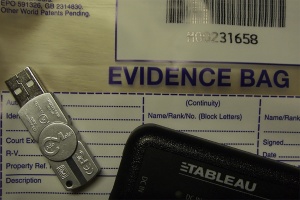Making your arguments more credible/ENGA103/Using the work of others/Reading
From WikiEducator
Jump to: navigation, search
Benefits of using the work of others
Consider the following questions:
- Do you think your audience will find your essay more or less credible if you quote the work of others?
- Do you think using the work of others replaces your own arguments?
- Are you able to identify in your own writing when an argument would be more powerful if it was supported with evidence?
Read Evidence from The Writing Center at UNC-Chapel Hill, for an overview of the benefits and parameters of using the work of others to support your claims.
There are four types of evidence:
- Facts: Because facts are indisputable, they are the most solid type of evidence to use in an essay. For example, historical events or statistics are facts that can support your arguments and convince the audience they won't waste their time reading your essay.
- Judgement: While facts are very useful to build and support arguments, they tend to be quite dry. Judgement can be used to put these facts in context. For example, if facts have proven that obesity puts people at a higher risk of heart disease, a judgement could be made that exercise could reduce the incidence of heart disease because it reduces the rate of obesity. The solidity of the judgement as a type of evidence to support your argument will depend entirely on the reasoning behind it.
- First-person testimony: Eyewitness or personal testimony can provide powerful evidence to support your claims. Imagine you're writing an essay about the 1994 Rwandan genocide for example. You could use evidence from several scholarly articles written on the conflict or statistics from the United Nations but you could also use material from Canadian retired Lieutenant-General Roméo Dallaire's first-hand account of the atrocities, which he published in his 2003 book, Shake Hands with the Devil: The Failure of Humanity in Rwanda. When using first-person testimony evidence however, it's best to use other forms of evidence to corroborate it.
- Expert testimony: After facts, expert testimony is the most important type of evidence to use in an essay. An expert is someone who has either collected the facts themselves (e.g. a scientist, a scholar, a writer) or analysed the facts to come to some conclusion. Most scholarly articles are written by experts in their fields. For example, a media scholar who has studied election result statistics may publish an article in a Media Studies' journal that you could use as evidence in your essay. It's important to note however, that experts are also human and that, just like anyone else, they can have biases or agendas. Even when using an expert source, it should be looked at critically.
